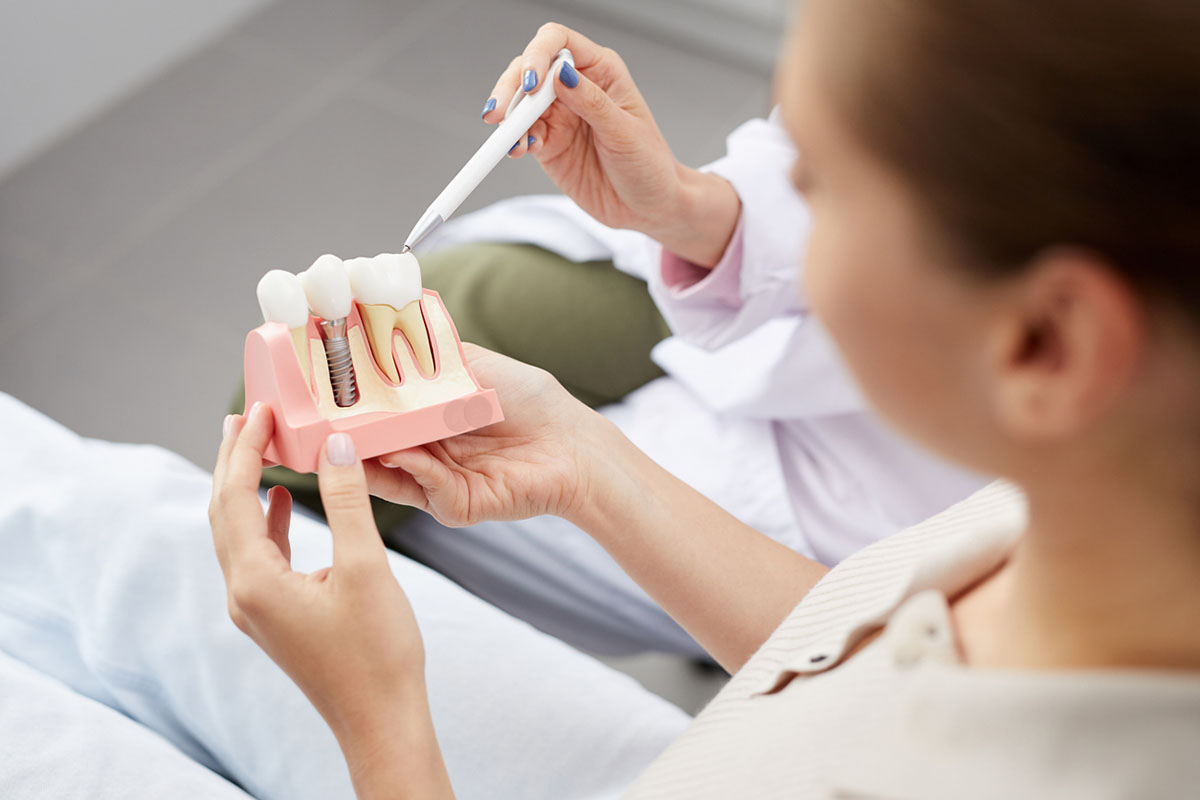
Posted on October 16, 2024
Dental implants have become a popular solution for individuals looking to replace missing teeth. Known for their durability and natural appearance, implants can significantly enhance a person's quality of life. However, a common question arises: How long do dental implants last? The longevity of dental implants can vary based on several factors, including individual health, lifestyle habits, and maintenance practices. Understanding these factors can help you maximize the lifespan of your dental implants.
Factors Affecting Implant Longevity
- Bone Health: Adequate bone density is crucial for the success of dental implants. If the jawbone isn't strong enough to support the implant, complications can arise. A bone graft may be necessary to ensure stability before the implant procedure.
- Oral Hygiene: Maintaining excellent oral hygiene is essential for the longevity of dental implants. Bacteria can still affect the surrounding gums and bone, leading to conditions such as peri-implantitis, which can jeopardize the stability of the implant.
- Lifestyle Choices: Habits like smoking, excessive alcohol consumption, and a poor diet can impact the healing process and overall success of dental implants. Smokers, in particular, have a higher risk of implant failure due to reduced blood flow and impaired healing.
- Medical Conditions: Certain health conditions, such as diabetes, autoimmune disorders, or osteoporosis, can affect how well your body heals and integrates the implant. It’s essential to discuss your medical history with your dentist before undergoing the implant procedure.
Tips for Implant Maintenance
To maximize the longevity of your dental implants, follow these maintenance tips:
- Practice Good Oral Hygiene: Brush and floss your teeth regularly, paying extra attention to the area around the implants. Using an antibacterial mouthwash can also help reduce plaque buildup.
- Avoid Hard Foods: While dental implants are durable, biting down on hard foods like ice or hard candy can cause damage. Be mindful of your diet to protect your implants.
- Use a Soft-Bristled Toothbrush: A soft-bristled toothbrush is less likely to cause damage to your gums and implants. It’s gentle yet effective for maintaining cleanliness.
- Consider a Water Flosser: Water flossers can help you reach areas around the implants that traditional floss may miss, ensuring thorough cleaning.
Regular Checkups
Routine dental checkups are crucial for the longevity of your dental implants. Regular visits to your dentist allow for early detection of potential issues, such as gum disease or implant mobility. Your dentist can also provide professional cleanings to remove any plaque or tartar buildup around the implants.
Most dental professionals recommend scheduling checkups every six months, but your dentist may suggest a different frequency based on your individual needs. Consistent monitoring and maintenance can significantly extend the life of your dental implants.
Schedule an Appointment with Stoney Creek Dental
Dental implants can last many years, even a lifetime, with proper care and maintenance. By understanding the factors that affect their longevity and following good oral hygiene practices, you can enjoy the benefits of your dental implants for a very long time.
If you’re considering dental implants or want to ensure the longevity of your current ones, contact Stoney Creek Dental today to schedule an appointment. Our experienced team is here to help you achieve optimal oral health and a beautiful smile!
